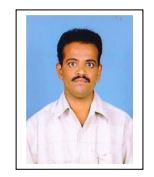

• Research and Development” generally refers to longer-term enterprises in Engineering and technology, using techniques without proposed outcomes and with huge anticipations of commercial needs. History has shown that educational institutions across the globe have played an essential role in the substantial progress of humankind. To remain as a leader of discovery, one should investigate like a scientist and aggressive like an engineer. To attain satisfaction one needs results; publishable and applicative results. R&D flourishes only where students and experienced faculty works synthetically.
• Research & Development (R&D) Cell is established in 2012 to promote research-based teaching-learning thereby preparing students for successful careers.
• A functional Research and Development Center is established to promote the research activity and functions of teachers and students in the right direction. This center focuses to imbibe a research culture in the campus by encouraging teachers and students to develop basic innovative thinking, work on minor and major projects, work towards sponsored research funding, extension and developing consultancy activities by associating with the Industry. It also encourages faculty members to publish technical papers in refereed journals, national and international conferences and suitable financial assistance is being given to such faculty members from the management funds. An In-house Research Journal ‘TEC Researcher’ has been brought out with specific intention of providing technical support for the research papers from the faculty and the scholars.

Research and Development Centre envisages providing an intellectual platform for the expression of the creative and critical instincts of the individuals while sharpening their faculties by exposing them to several current trends in the industries and academic institution.
Promotion and enrichment of the quality of research practices and publications among scholars and faculty communities
TIRUMALA ENGINEERING COLLEGE is committed to maintain and encourage the quality research in engineering core field. It has derived its own stated code of Ethics for checking malpractices and plagiarism in academic research. Hence Plagiarism, academic malpractices either by faculty or students are unacceptable in research and need to be curbed. TEC insists the faculty members and students to be aware of the intricacies of plagiarism and maintain the originality of their works in article publishing process. So, following certain code of ethics in research conduct and publication is essential to maintain the integrity and dignity of the Institution and quality of the research works as well.
An exclusive Research and Development Committee is constituted to enhance the quality of academic research in the institution. The committee comprises all PhD holders of the institute to assess the faculty researcher , who produce their work in the form of Research Publication / Research Proposal / Thesis Work / Project Report. This team aims at verifying the levels of plagiarism in the research work and ensures high academic and production standards. The Project Guide and the Scholars are advised to use online plagiarism check tools for even inadvertent copying of materials. Faculty members pursuing PhD are expected to maintain plagiarism between 15-20% and the same to be approved by R & D Committee headed by HoD/R&D before submitting to International/National Conferences or Journals for publication.
Resorting to any malpractices or violation of the standard ethics of plagiarism in research works will be viewed seriously depending on the degree of plagiarism. The R&D Committee will submit the report after thorough investigation and recommends disciplinary action where necessary based on the gravity of the lapse, to be imposed within the stipulated period. Plagiarism and types and levels can be accessed from the following sources. All the works carried out by the students and faculty as part of research, University academic projects, extension projects, journals or conference papers to be submitted in national/ international level are thoroughly verified by the R&D Committee scrupulously adhering to the following procedures for UG level projects:
| Sl. No. | Name of the Faculty | Department | Designation | Responsibility in the Committee |
| 1 | Dr. Y. V. NARAYANA |
ECE |
Principal |
Chairman |
| 2 | Dr. D. Reddy Babu |
AS&H |
professor |
Convener |
| 3 | Mr. T. Jagadish |
ECE |
Assoc.professor |
Co-Convener |
| 4 | Dr. K. Satish |
CSE |
professor |
Member |
| 5 | Dr. M. Manoj Kumar |
EEE |
professor |
Member |
| 6 | Dr. S. Rama Rao |
MECH |
professor |
Member |
| 7 | Dr. R. Lalu Naik |
CSE |
professor |
Member |
| 8 | Dr. K. Kanthi Kumar |
ECE |
Professor |
Member |
| 9 | Mr. k. Midhun Kumar |
CIVIL |
Asst. Prof |
Member |